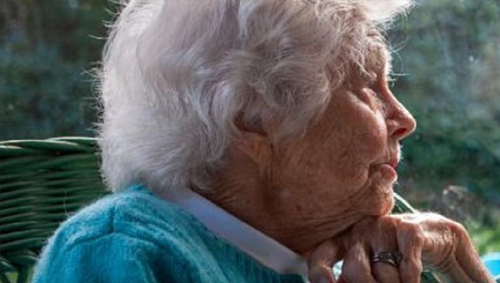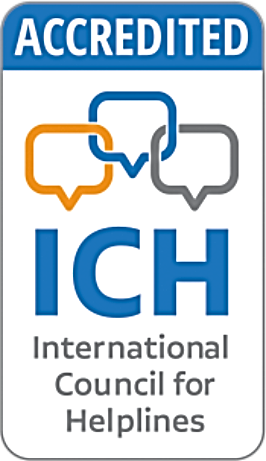
Just weeks ago, Gail’s “support system,” her cousin, passed away. Months prior, she lost her best friend.
Now she can go days without hearing from any family or friends.
But there’s one call she can count on every single day at 11 a.m. — the same friendly volunteer who just wants to check in.
“We’ve become friends, and we talk about everything,” the 84-year-old told New Jersey 101.5. Gail is one of the dozens of residents who are signed up for the Reassurance program from Contact of Mercer County, a crisis helpline. The free calls are available for county residents over the age of 60 who live alone or are alone for a good part of the day.
“When you can’t talk to anybody for days … you’re all alone and you wonder what are you going to do if something happens. Who’s going to know?” Gail said.
If she doesn’t answer her 11 a.m. call, there’s a list of neighbors that can be contacted and asked to check Gail’s home.
The Reassurance program has been running for decades, according to Eleanor Letcher, executive director of Contact of Mercer County. And when COVID first started causing issues in New Jersey, clients were receiving two calls per day.
“That daily call — it’s consistent, it’s short, and it’s really showing that somebody that you never met cares enough about you to call you every day,” Letcher said.
Isolation can negatively impact not only one’s mental health, but their physical well-being as well, Letcher noted.
In an 80-page advisory issued in early May, U.S. Surgeon General Vivek Murthy called attention to the “public health crisis of loneliness, isolation, and lack of connection in our country.”
Lacking connection can increase one’s risk for premature death at levels comparable to smoking cigarettes daily, Murthy said. Isolation has been linked to increased risk of heart disease and stroke, and, for older adults, developing dementia, the advisory says.
“Given the significant health consequences of loneliness and isolation, we must prioritize building social connection the same way we have prioritized other critical public health issues such as tobacco, obesity, and substance use disorders,” Murthy said. “Together, we can build a country that’s healthier, more resilient, less lonely, and more connected.”
His advisory lays out a framework to improve social connection, which includes a call for more awareness among health providers and policies that support connections like accessible public transportation and paid family leave.
Dino Flammia is a reporter for New Jersey 101.5. You can reach him at [email protected]

Just weeks ago, Gail’s “support system,” her cousin, passed away. Months prior, she lost her best friend.
Now she can go days without hearing from any family or friends.
But there’s one call she can count on every single day at 11 a.m. — the same friendly volunteer who just wants to check in.
“We’ve become friends, and we talk about everything,” the 84-year-old told New Jersey 101.5. Gail is one of the dozens of residents who are signed up for the Reassurance program from Contact of Mercer County, a crisis helpline. The free calls are available for county residents over the age of 60 who live alone or are alone for a good part of the day.
“When you can’t talk to anybody for days … you’re all alone and you wonder what are you going to do if something happens. Who’s going to know?” Gail said.
If she doesn’t answer her 11 a.m. call, there’s a list of neighbors that can be contacted and asked to check Gail’s home.
The Reassurance program has been running for decades, according to Eleanor Letcher, executive director of Contact of Mercer County. And when COVID first started causing issues in New Jersey, clients were receiving two calls per day.
“That daily call — it’s consistent, it’s short, and it’s really showing that somebody that you never met cares enough about you to call you every day,” Letcher said.
Isolation can negatively impact not only one’s mental health, but their physical well-being as well, Letcher noted.
In an 80-page advisory issued in early May, U.S. Surgeon General Vivek Murthy called attention to the “public health crisis of loneliness, isolation, and lack of connection in our country.”
Lacking connection can increase one’s risk for premature death at levels comparable to smoking cigarettes daily, Murthy said. Isolation has been linked to increased risk of heart disease and stroke, and, for older adults, developing dementia, the advisory says.
“Given the significant health consequences of loneliness and isolation, we must prioritize building social connection the same way we have prioritized other critical public health issues such as tobacco, obesity, and substance use disorders,” Murthy said. “Together, we can build a country that’s healthier, more resilient, less lonely, and more connected.”
His advisory lays out a framework to improve social connection, which includes a call for more awareness among health providers and policies that support connections like accessible public transportation and paid family leave.
Dino Flammia is a reporter for New Jersey 101.5. You can reach him at [email protected]








